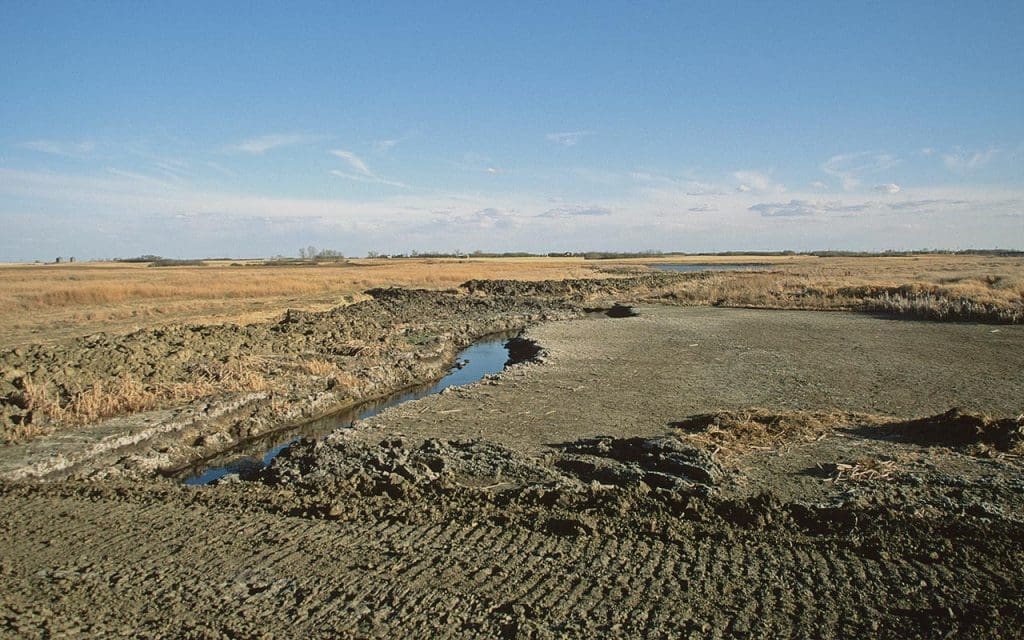We don’t usually think about our wetlands.
They are not as beautiful as the Lake Louise nor as majestic as the Niagara Falls. Instead, wetlands come with benefits that serve beyond our aesthetic needs.
Wetland is a pool of water that exist because water accumulates in a basin after flooding or after the snow melts during spring that the water remains long enough to support plant growth. Wetlands have many benefits; they are some of the most productive ecosystems, they store floodwaters, act as natural water filters, the peats in wetlands help store carbon and most importantly, wetlands are the spots for groundwater recharge and discharge, protecting us from the droughts while transferring the water towards nearby surface waters.

Drainage of wetlands for agriculture and urbanization is the major cause of wetland loss. (Source: Ducks Unlimited Canada)
What is happening to our wetlands?
Despite being able to provide so much, wetlands can also be extremely vulnerable. About 70% of wetlands in settled areas in Canada are lost as they were drained out and destroyed to make way for unsustainable agriculture and new buildings.
Dr. Ali Ameli, a hydrogeologist from the University of British Columbia, made a computer model to compare the number of wetlands in Beaverhill watershed in Alberta in 50-years period. From his research, he found that the loss of wetlands is causing a major shift in the movement of groundwater. Nearby river, for example, is gaining their water from further and older sources. This means that there is less groundwater recharge compared to discharge.
How does that affect us?
The lack of freshwater and clean water will impact economic needs such as irrigation for agriculture, water consumption at homes and even ecological needs like habitats for stream fishes and other aquatic animals. Without wetlands, nutrients like phosphorus that is released from farms cannot be filtered and will get into water bodies, which then lead to the blooming of harmful and toxic algae. Oxygen levels will reduce which result in dead aquatic animals. Alberta is also Canada’s 2nd largest agriculture producer. The loss of wetlands will cause loss of irrigation sources for the farms, which then will impact our food resources and Alberta’s economic as a whole.

A fish is dead because of the lack of oxygen in water contaminated with algal blooms. (Source: Tom Archer)
How do we save our wetlands?
From a scientist’s view, the goal is to produce more scientific research to better manage our watersheds with less environmental issues and more productivity for forestry and agriculture.
Meanwhile, the government should apply scientific methods in their policies. For example, the government of Alberta actually applied Dr. Ameli’s models and approach to see and calculate the locations in the watershed that wetlands are good to be drained, and the location that wetlands cannot be drained.
For individuals, we can share our thoughts with friends and various levels of government and the business community. It is time for us to think more and act on our dying wetlands.
– By Katrina, Setareh, Gloria, and Syakirah from 212-6

3 responses to “Dear Canada, we are losing our wetlands, and it is affecting us more than we think”